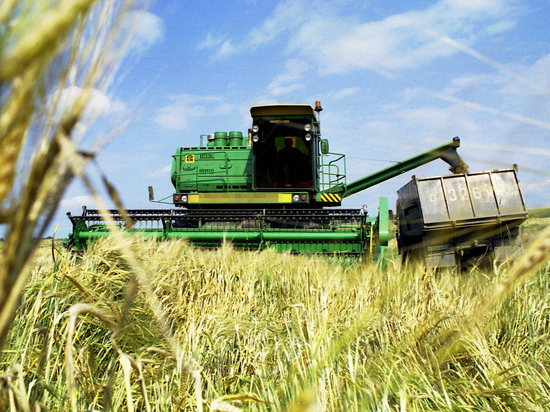Lavrov received written promises from the West on the “grain deal”
[ad_1]

But the bargaining continues
Russia’s position on the fate of the “grain deal” became clear on November 16, the last day of the G20 summit. Finance Minister Anton Siluanov said that the Russian delegation was in favor of extending the agreements. “Sergey Viktorovich Lavrov said that we are for the continuation of the “grain deal”, but we are for the grain to go to the countries that need supplies, and not to the countries of the West,” he said. This position was reinforced by the signature of the Russian Federation under the final declaration of the summit, which notes the importance of further implementation of the Istanbul agreements by all parties involved.
Lavrov himself explained that UN Secretary General António Guterres presented him with written promises from the United States, Great Britain and the European Union not to interfere with the export of Russian grain and fertilizers. The statement, which was signed ahead of the G20 meeting by Secretary of State Anthony Blinken, Head of European Diplomacy Josep Borrell and British Foreign Secretary James Cleverley, called on banks, insurers, ports and other “global partners involved in the agricultural trade” to service Russian supplies. In fact, this document can be considered as a guarantee of non-application of secondary sanctions to market participants. “If these good intentions are realized, then the obstacles to the export of our fertilizers and grain will be removed,” Lavrov said.
The Kremlin also does not deny that the agreements reached at the G20 were taken into account when deciding to extend the “grain deal”, which allows Ukraine to export its food. According to Dmitry Peskov, the statement by the US, UK and EU is “important progress in a positive way.” “There is an assurance from the UN that the work to ensure Russian exports will be finalized in order to completely unblock all direct and indirect problems that stand in the way,” he told reporters. However, Moscow, not only in words, but also in deeds, could be convinced of the sincerity of the “good intentions” of its former partners.
The necessary signals were sent to the right place, and since the beginning of October, the export of Russian grain began to grow: according to Bloomberg, in a month and a half, Russia exported 6.53 million tons of grain and other food by sea. This is almost 2 million tons more than in the same period last year. The government of the Russian Federation also confirms that “despite the sanctions pressure”, the supply of agricultural products is going according to plan. According to Deputy Prime Minister Victoria Abramchenko, as of November 15, 2021, Russia exported 15.6 million tons of grain (including 13 million tons of wheat), and now – 15.7 million tons (of which 13.4 million tons of wheat) . By the end of the calendar year, volumes will increase to 30 million tons, and by June 30 (the end of the agricultural year) they will reach 50 million tons.
As regards fertilizers, the situation is more complicated, but there is progress here as well. In particular, the Netherlands, Belgium and Estonia (Latvia is still resisting) have already agreed to unblock Russian fertilizers arrested in the summer. According to Moscow’s decision, they will be sent free of charge to needy African countries as part of the UN World Food Programme. The Kremlin expects that commercial deliveries will be given the green light after humanitarian deliveries: in the meantime, exports of mineral raw materials have dipped by 38%. “This led to the fact that consumers did not receive 25 million tons of food, which theoretically could feed about 105 million people,” diplomats complain.
Moscow emphasizes that at this stage the extension of the “grain deal” is of a technical nature. This means that no changes will be made to the agreements reached earlier. Since there were no objections from the participants, the deal is automatically extended from November 19 for another 120 days – this procedure was agreed in July in Istanbul. However, it is no secret to anyone that both Russia and Ukraine have certain “Wishlist”, the discussion of which will continue in various formats. Volodymyr Zelenskyy expects to extend the deal immediately for a year and include the ports of the Mykolaiv region, through which 35% of Ukrainian food was exported until February 24. (This position is also supported by Turkish President Recep Tayyip Erdogan, but so far it has not been possible to obtain the consent of the Russian side.)
Vladimir Putin has not commented on current events for a long time. However, it is known from reports from various sources that Russia is seeking to ease sanctions against Rosselkhozbank and resume deliveries of ammonia fertilizers through a pipeline passing through Odessa, which, according to expert estimates, will return about $2.4 billion in annual income to it. According to Deputy Foreign Minister of the Russian Federation Sergey Vershinin, Rosselkhozbank needs to be reconnected to the SWIFT system. At the same time, the Russian side is ready to give guarantees that only those transactions related to food and fertilizers will be carried out through it. In other words, the bargaining continues.
Newspaper headline:
Grain Deal: 120 more days
[ad_2]
Source link






